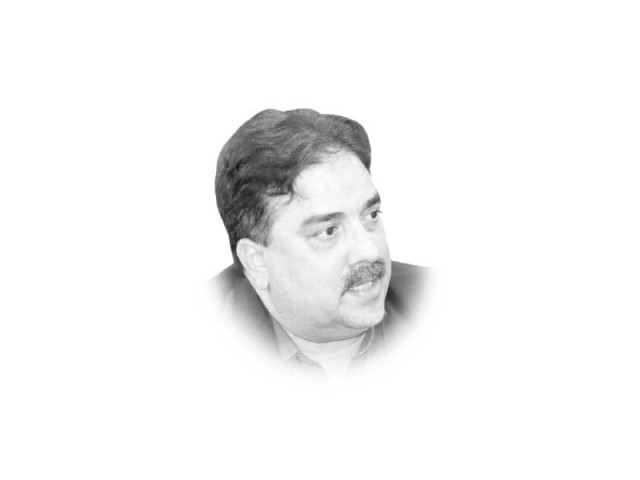A refresher on military diplomacy
Pakistan’s 240 million people are enterprising and passionate for the glory and emancipation of their motherland

It was a pleasure to be at the Joint Services Headquarters, Rawalpindi, for a briefing and, moreover, proud to be in the alleys of military brass and listen to a valuable discourse from a decorated officer. The exclusive session for IPRI’s intelligentsia was meant to thoroughly deliberate over regional and international affairs, and the policy perspective that the military leadership is pursuing along with the political strata. It was enthralling to listen to the deep insights in terms of relations with the United States, the lone superpower; China and Russia, the emerging powers; and the enigmatic India and Afghanistan; besides a host of minute details when it comes to realism and idealism.
Though as a journalist, I had an opportunity to be part of a similar briefing at Pentagon, USA, in 2004 as a nominee of the prestigious State Department I.V Program, this interaction, however, was thrilling and touched my heart. As it unfolded at a time when the society is in political divisiveness and organs of the state are in disarray, it was reassuring to hear that the country’s defence is in impregnable hands, and the military diplomacy is apt and astute to the best of national interests. It was a realistic version on display, as the audience was engaged in a threadbare discussion, and the services’ representative was candid in disseminating quality information and analysis.
A word or two on military diplomacy would suffice by summarising that Pakistan has acquired the best out of its relations with the United States and China, and had acted wisely as and when required, conducive to the international environment. In a life span of seven decades, it has scaled new heights in capacity building in the security realms, and has succeeded in coming up with a credible deterrence with India. The nuclear muscles are its sovereign strength, and strategically the armed forces are second to none in terms of harnessing hard and soft power.
Such civil-military interactions are the need of the hour, and it would be quite relevant if the public relations chapter of the Services’ Chiefs comes up with periodic briefings and two-way scholarly interactions at universities and colleges. What impressed me the most is the understanding on the part of military officials to engage the public, and provide them an opportunity to ask anything under the sun, pertaining to policy formulation and execution, and address the misnomers and taboos in our otherwise highly polarised society. Notions, assumptions and pre-determined mindsets are an enigma, and can be only fought, countered and overwhelmed by more and more interaction in a convincing manner.
Pakistan’s 240 million people are enterprising and passionate for the glory and emancipation of their motherland. While Pakistan’s armed forces play a pivotal role in securing the frontiers and deterring irritants from across the borders, they for decades have been closely involved in fighting a faceless enemy too within the parameters of the state. This is where their role becomes critical, and comes in direct interaction with the masses, who awe and uphold their services in high esteem. This invaluable trust is in need of being eulogised.
That spirit, indeed, was amplified as the officer made it a point in his korero to diligently apprise that the people of Pakistan and the armed forces are indispensable to each other. It was soothing to hear that the security forces are well aware of the pulse of the nation. That is the path to go as we build on a stronger and viable nation-state. Time to resurrect this collaborative theme of nationalism by squarely addressing misgivings.
Published in The Express Tribune, April 2nd, 2024.
Like Opinion & Editorial on Facebook, follow @ETOpEd on Twitter to receive all updates on all our daily pieces.















COMMENTS
Comments are moderated and generally will be posted if they are on-topic and not abusive.
For more information, please see our Comments FAQ